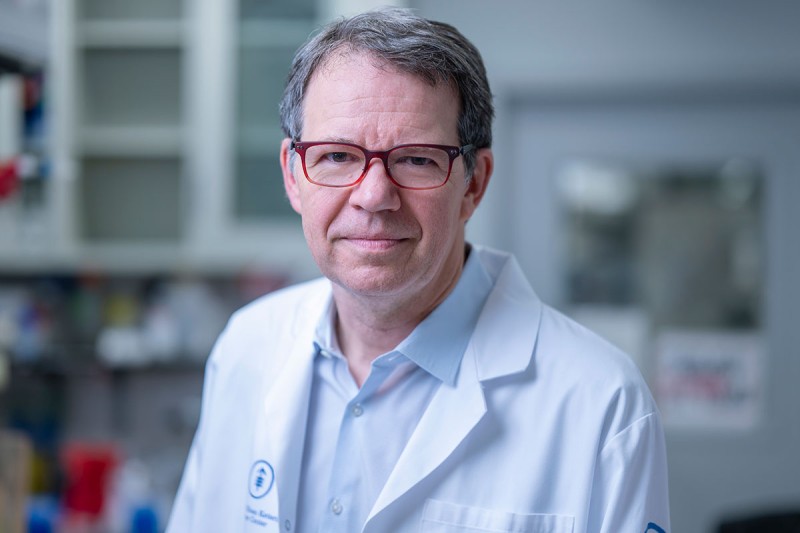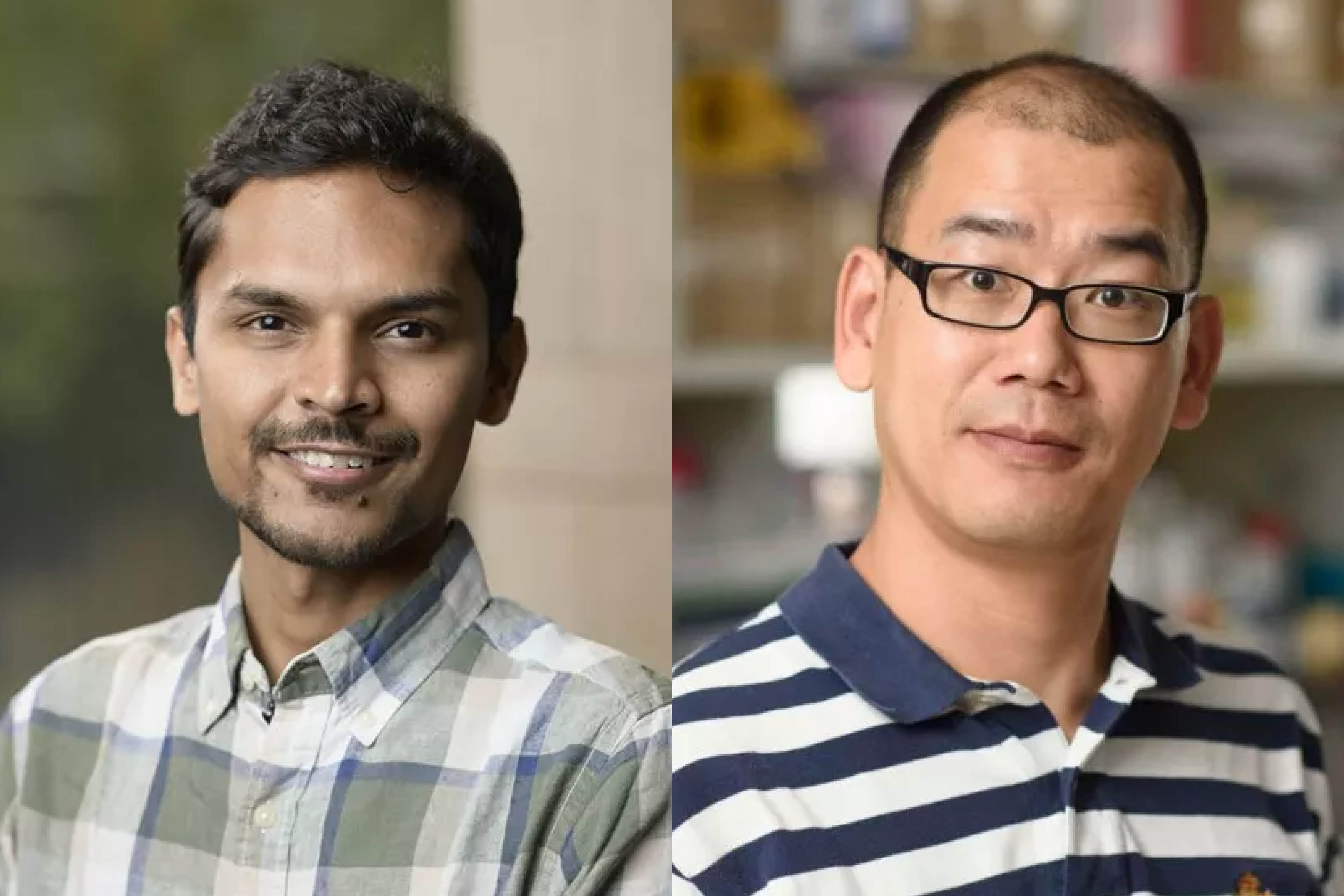
Dr. Michel Sadelain’s lab showed that disrupting a single gene called SUV39H1 gave CAR T cells more staying power to fight cancer.
CAR T cell therapy, a powerful type of immunotherapy, has begun to revolutionize cancer treatment. Pioneered at Memorial Sloan Kettering Cancer Center (MSK), the therapy involves engineering a patient’s T cells so they recognize and attack cancer cells. These CAR (chimeric antigen receptor) T cells are then multiplied in a lab and given back to the patient to be a continual fighting force against the cancer.
New research from the lab of physician-scientist Michel Sadelain, MD, PhD, shows that disrupting a single gene in the CAR T cells can make them more potent and able to fight tumors longer.
Impact of the SUV39H1 Gene on CAR T Cell Therapy
In a paper published in Cancer Discovery, the team demonstrated that disrupting the gene SUV39H1 causes a ripple effect: It restores the expression of multiple genes that help sustain the T cells’ longevity. The researchers showed that this approach improved CAR T cell effectiveness against multiple cancers in mice.
“If we could help CAR T cells maintain their function by disrupting just one gene, it opens up a wide range of therapeutic benefits,” says Nayan Jain, PhD, a member of the Sadelain lab and the study’s co-first author.
Many patients have undergone several kinds of chemotherapy before receiving a CAR T treatment, he explains. As a result, their T cells are depleted and stressed, which makes it hard for them to multiply and effectively fight the cancer.

(From left) Dr. Nayan Jain and Dr. Zeguo Zhao, of the Sadelain Lab
“This new approach requires fewer CAR T cells and therefore could expand the pool of patients that could be eligible for this treatment,” Dr. Jain says. “It could also increase the effectiveness of the CAR T therapy for each patient.”
“With this new approach, CAR T cells augment their longevity and maintain their tumor-killing function simultaneously, so we can use a lower dose to treat the patients, which may reduce a severe side effect called cytokine release syndrome (CRS),” says co-first author Zeguo Zhao, PhD, also of the Sadelain lab.
Overcoming T Cell Exhaustion in CAR T Cell Therapy
The tendency of CAR T cells to lose their function over time — a phenomenon known as T cell exhaustion — has been a major treatment hurdle. Even when the CAR T cells are effective in the short term, the cancer often comes back. This problem explains in part why CAR T cell therapy has not worked as well against solid tumors (which account for most cancers) as it has for blood cancers.
Dr. Sadelain, Director of the Center for Cell Engineering, first engineered T cells 30 years ago and has been continuously striving to improve CAR T cells. Earlier research by the Sadelain team revealed that T cell exhaustion can happen when certain genes in the T cells are turned off. And what turns off these genes? The answer lies in the epigenetics of cells.
Think of epigenetics like a dimmer switch on DNA — lowering the lights without changing the lamp fixture. Likewise, epigenetics can alter gene expression without changing the DNA sequence.
How Changing One Gene Could Impact Many
Many epigenetic changes occur because of the way DNA is packaged in the nucleus of a cell. The DNA strands are wrapped around spool-like proteins called histones. In regions where the DNA and proteins are packed tightly, the genes are inaccessible and cannot be turned on.
The researchers noticed that the epigenetic changes disabling a number of helpful genes were in part regulated by SUV39H1. This single gene caused the other genes to be shut down.
“We decided that rather than trying to change the expression of all those different genes individually, we could just focus on disrupting SUV39H1,” Dr. Jain says. “This would allow us to fine-tune the expression of multiple genes at once to enhance T cell function.”
Study Results Using CRISPR/Cas9 Technology To Edit the SUV39H1 Gene
The researchers used the gene-editing tool CRISPR/Cas9 to alter SUV39H1 in human CAR T cells. They placed these modified CAR T cells into mice that had been implanted with either human leukemia cells or prostate cancer cells. For both cancers, the CAR T cells were able to sustain their function without becoming exhausted, leading to tumor elimination. By contrast, mice with unedited CAR T cells did not survive the cancer.
“The edited CAR T cells can maintain their anti-cancer effects, even when we challenged them repeatedly by exposing them to new tumors over time,” Dr. Zhao says. “These results suggest that SUV39H1-edited CAR T cells may reduce tumor relapse in patients.”
There did not appear to be serious side effects in the mice, although researchers will need to confirm the safety of this approach in humans. The biotechnology company Mnemo Therapeutics is exploring the possibility of conducting clinical trials based on this research.
Dr. Jain credits the expertise and resources of the Core Facilities at the Sloan Kettering Institute — a hub for basic and translational research within MSK — to make this discovery possible, as well as MSK’s Center for Epigenetics Research and the Integrated Genomics Operation.
“There are many really advanced technologies needed for these kinds of studies that we can’t do ourselves in the lab,” Dr. Jain says. “Having other experts available in-house vastly accelerated our work.”